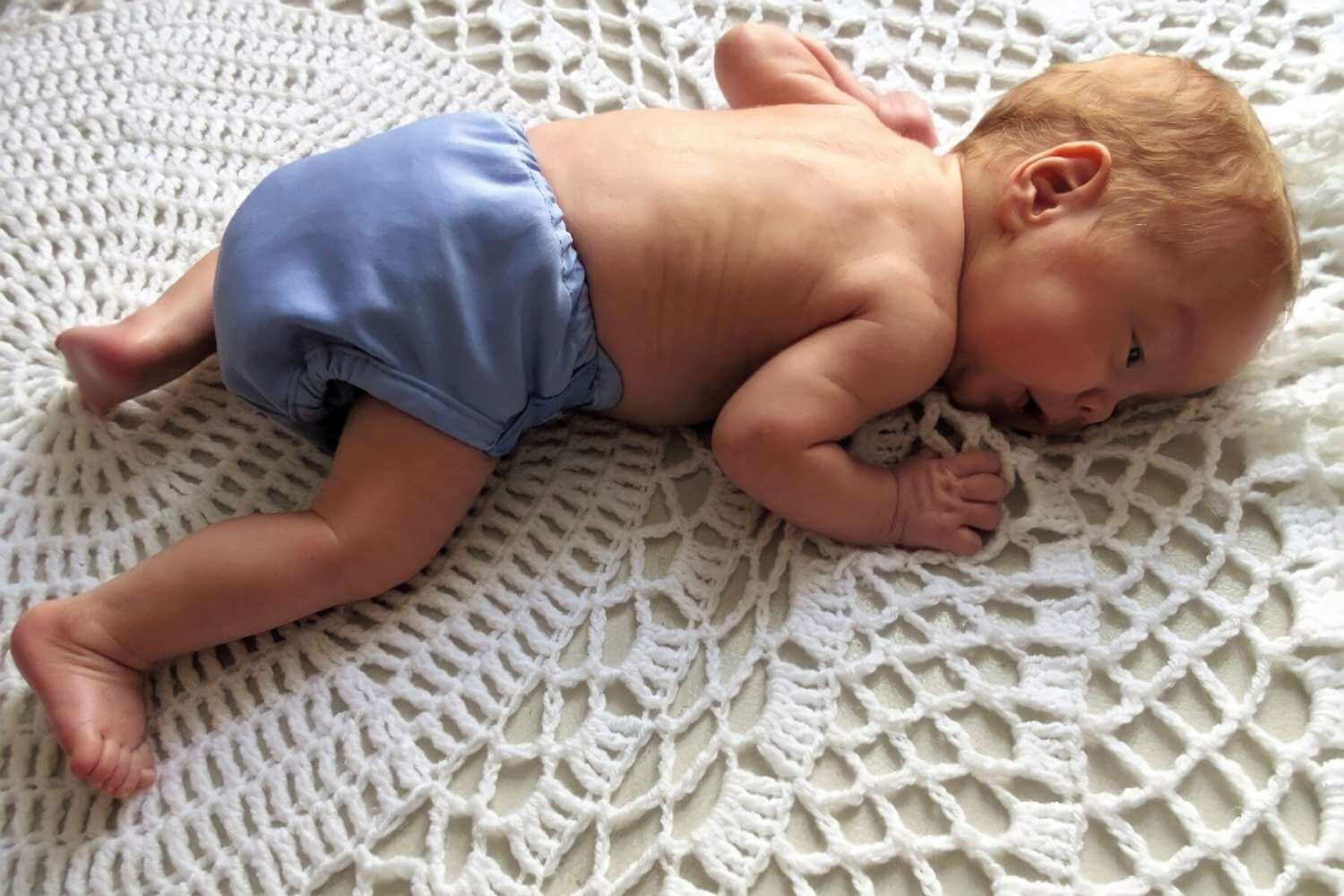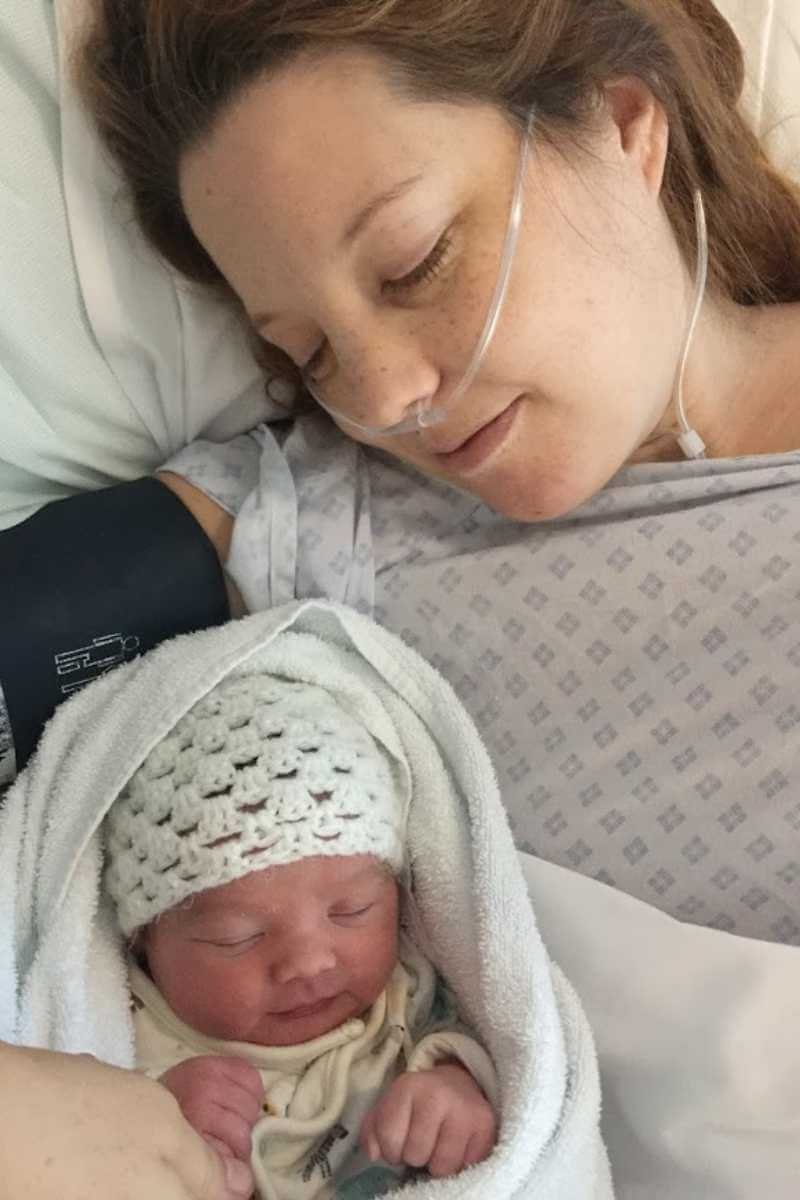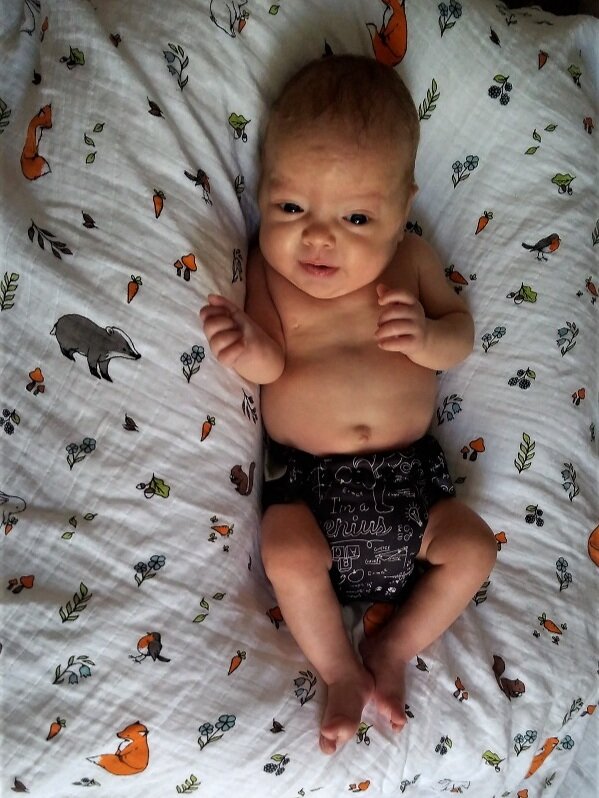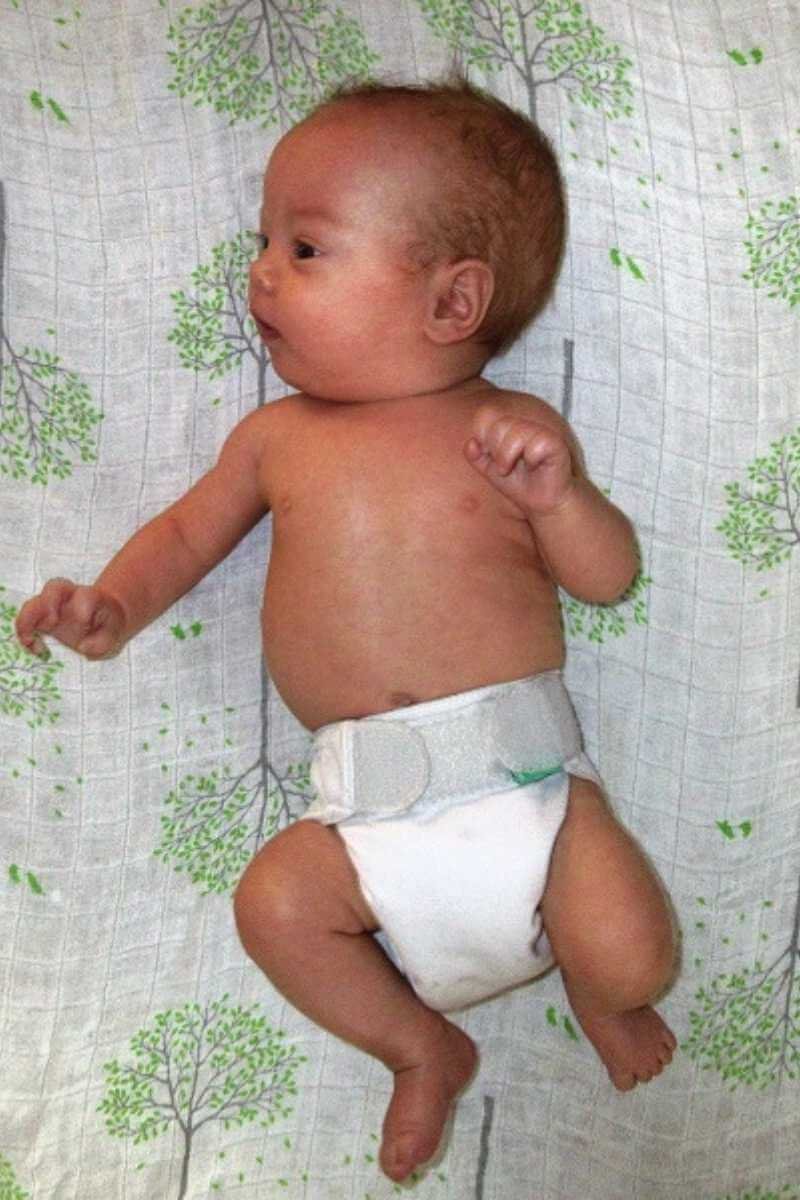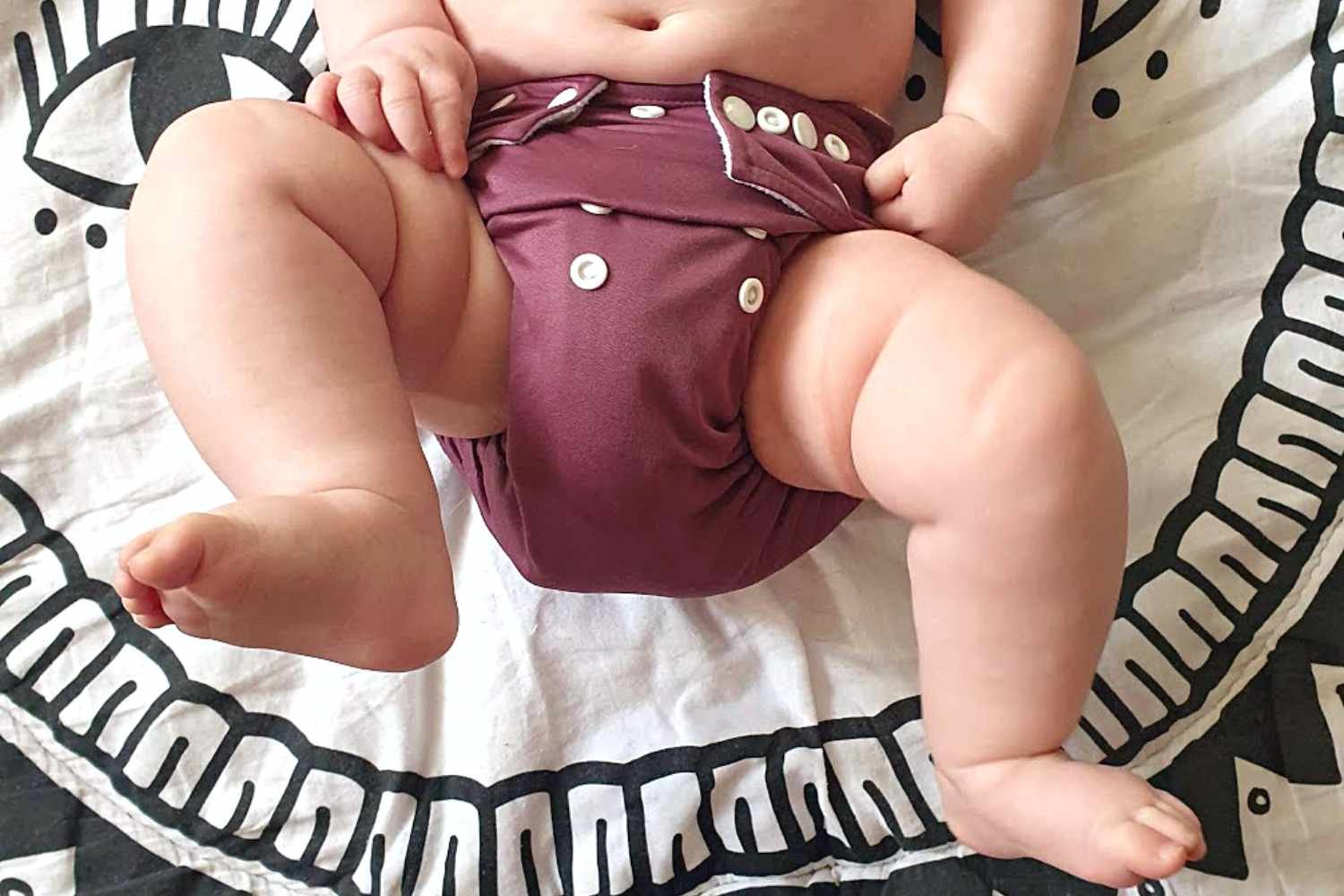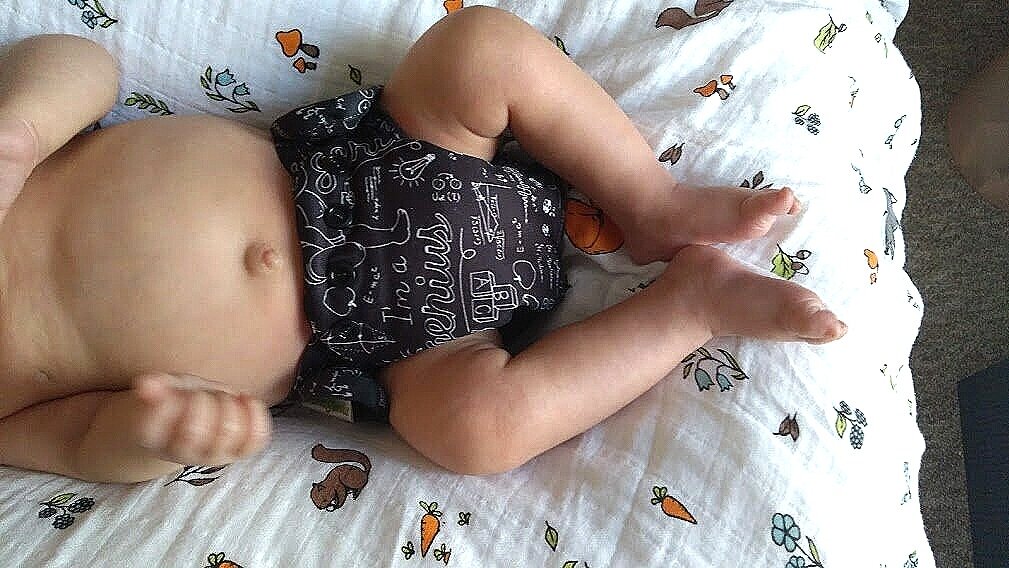Using Cloth Nappies On Your Premature Baby
Are you feeling completely baffled trying to get your premature baby into cloth nappies?
I remember that feeling all too well.
It all started when I tried to put my 4lb premature baby in a tiny reusable diaper and ended up covered in poop.
I honestly thought nappy changes would get easier once my son was out of the incubator. I couldn’t have been more wrong.
(Did anyone else’s preemie save their projectile shots for mum?)
After seeing the recurring nappy rash that came with pampers micro, I was determined to get my son in cloth as soon as possible. There was no help or advice anywhere on using reusable nappies on a preemie, so I bought a few different brands and hoped for the best.
Once my baby was 5lb, I began trying different newborn nappies that claimed to start from 5lb. I call this my trial-and-error-everything-leaks-ARGH stage.
Fast forward two and a half years and I had my second preterm birth (this time a lot closer to term).
Coming up:
The different styles of cloth nappies
Cloth nappies in NICU
Considering the weight of your babies
Comparing my preemies’ weights
Tips for getting started
6 Cloth nappies I used on my 28 weeker
Nappy covers
I initially wrote this blog post when my first child was a baby and reusables were finally working for us. I wanted to make that resource that I didn’t have, giving tips for cloth-bumming low birth weight babies, and providing brand recommendations and general advice for preemie parents. Since then, I’ve updated the post to include my experiences with a second (heavier) preterm baby.
Hopefully, I answer all your questions but feel free to ask me anything in the comments below.
1. Learn the different styles
Regardless of whether your baby is premature, it’s common to feel overwhelmed by all the cloth nappy info out there.
You don’t have to learn all the terminology, but it helps to have a basic understanding of the different styles available. If you haven’t done this yet, have a look at my blog post which type of cloth nappy should you choose? It shows you the different styles in an easy-to-understand way and explains the pros and cons.
Which style of nappy is best for a premature baby?
As premature babies have less body weight, I found two-part nappy systems were the most effective, especially fitted nappies. Some adapt to your baby’s individual body shape and are less likely to leak if their legs are slim.
The downside of fitted nappies is they can be quite bulky.
2. Cloth nappies in the NICU
If your baby is in neonatal intensive care, it may not be possible to use cloth nappies. The nurses like to weigh the nappies to monitor urine output initially. After that, you can have a chat with the nurse in charge as I imagine it’ll be down to the hospital policy.
A child in hospital is very stressful so it is perfectly understandable if you want to wait until your baby is home with you. Extra laundry is not what you need when you’re in NICU or Special Care.
It’s also worth thinking about how many different hospital staff will be changing your baby. They are usually busy and it’ll be hard to keep explaining it to every member of staff. You don’t want a nurse or midwife to accidentally throw one in the bin!
With my second preemie, I was on a hospital ward with my daughter rather than in the NICU, but I was much more unwell than the first time. I couldn’t even pick her up so the midwives were changing her disposables for about 2-3 days.
Can you use cloth nappies in the NICU or SCBU?
All NICU journeys are different and if you really want to give cloth a go and your NICU is ok with it, then that’s great!
Just make sure you’ve got a well-researched wash routine (I’d recommend Clean Cloth Nappies) and remember you can still switch between reusable and disposable. Part-time cloth is perfectly okay.
There is also limited space in hospitals and a smelly wet bag will not be appreciated. Make sure you are organised, keep your things tidy and take the soiled nappies home with you when you leave.
Born at 28 weeks, 3 months old
3. Consider the weight of your premature babies
It is important to consider the weight and gestation of your preemie when it comes to choosing reusable nappies.
I had two very different experiences because one of my preemies had a low birth weight and the other was late-term. Being born 8 weeks apart in gestation meant their levels of body fat and resulting shape were completely different. My second child also gained weight much easier than her big brother because she was in the womb for part of trimester 3 when more fat is stored under their skin. She was double the size of her big brother at birth and about the same weight as him when he was three months old.
I’ve added more information about each of my baby’s weights and how that affected cloth nappies in case it helps you compare with your babies of similar sizes. Feel free to skip ahead if you want to get to the nappy reviews.
Me and my 28 weeker at 3 weeks old.
Me and my 28 weeker at 2.5 months, finally outside
Kitt
My son, Kitt, was born at 28 weeks weighing 2lb 13oz.
He came home with us at 8 weeks old weighing 4lb 1oz but he had difficulty gaining weight. At 6 months old he weighed 10lb. As he was born with low birth weight, he was very skinny, particularly his legs, which meant most cloth nappies leaked around his legs.
Kitt was significantly more premature than his little sister would be, so he got a lot more use out of the newborn nappies. The difficulty was getting him big enough to wear them. Even when he was heavy enough, he didn’t have enough body fat to fill the leg holes in some brands and the lack of fat meant his skin was thinner and more delicate to elastics.
Once he weighed around 5lb-6lb we changed to eco-disposables and kept trying him in reusables every so often, but we experienced a lot of leaks in anything that wasn’t a fitted nappy under 7lbs.
Me and my 35 weeker
Joss
My daughter, Joss, was born at 35+6 weeks weighing 5lb 14oz. I was on a transitional care ward after an emergency c-section (with no visitors allowed - thanks Covid) and it was so much easier not having to think about nappies.
After 5 emotional days of feeding struggles and low sugars, she came home weighing 5lb 1oz. Once she had recovered from a really difficult birth and learnt how to breastfeed, she had no more weight issues and ended up quite chunky.
Joss fit into newborn nappies much easier than her brother, although, she was never able to fit into some brands that claimed their nappies fit from 5lb.
My daughter was in newborn nappies for a few months, but as she was an efficient feeder she needed more absorbency than her brother.
Bumgenius Littles V2 - 4.5 months old (6 weeks corrected)
4. Tips for getting started
It feels a lot more complicated when your little one is too small for the standard 'from birth' size. Here are my best tips for getting started when your baby is premature.
If you have a nappy library nearby you should make that your first point of call. It will be a lot easier to figure out what suits your baby if you can try the different types.
If your baby was born closer to full-term, it may not be cost-effective to spend lots of money on newborn nappies. I would recommend using muslins, terries or flats with a waterproof cover.
Find out if your council has a reusable nappy incentive scheme. Some councils will refund certain amounts (with receipts).
Buying secondhand is a great way to save money. You can usually find newborn nappies on eBay or you can ask in cloth mum groups on Facebook.
The cloth nappies I tried on my 28 weeker
The next section of the blog is the original unedited version. I am planning on updating it soon to include my experience using these nappies (and more) with my second child.
1. Newborn pop-ins by close parent
Newborn Joss (35 weeker) at 1 week old approx 5lb 4oz
Kitt (28 weeker) at 3.5 months old approx 5lb 10oz
The Pop-In newborn nappy consists of a waterproof wrap and a nappy insert that you popper inside the wrap.
The insert has two sides, one is soya fibre which is natural and soft. The other side is polyester which stays dry against your baby's bum. It is up to you which side you put against your baby’s skin.
Pop-ins fasten with aplix (Velcro) and they have a double gusset on the leg to help prevent leaks.
The weight range for Pop-Ins is 5lb - 12lb, which is ideal for premature babies that are born closer to term.
Sizing with 28 weeker
Kitt, 3 months old, 5lb 10oz
Kitt, 4 months old
If your child had a low birth weight, you might find they take longer to fit into them.
My 28 weeker could fit into this from around 5 and a half to 6lb (around 3 months) but we got frequent leaks because he didn’t have enough body fat. Even with a double gusset, they didn’t fit him securely enough on the legs even at 4-5 months.
Newborn nappies aren’t designed to hold a large amount of urine because new babies get changed so often. But Kitt was getting older, drinking loads and loads and the nappy couldn’t keep up even though his body was still small.
When babies are this petite (in terms of body fat), it is difficult to boost them because they become too bulky which made it harder to get a snug fit. I found doubling up on inserts didn’t really work with him.
These were my “at home only” nappies with him because I didn’t want to risk leaks when I was out of the house but by the time he was 5 months I had swapped to fitted nappies and didn’t reach for these much.
They look okay when you see a photo, they are slim-fitting and easy to use, but the leaks were enough to put me off.
Sizing with 35 weeker
Joss (35 weeker) 8 days old, 5lb 5oz
I quite liked them on Joss once she was a few weeks old and gaining weight well. They were ideal for quick changes, they fit okay under her clothes (unlike fitted nappies) and they dried quite fast.
I had Kitt in them from around 5lb - 5 and a half lb but I didn’t like them on him due to his legs being really skinny due to his slow weight gain and feeding troubles.
I’d say they are much better suited to a late-term preemie rather than a low birth weight one.
Pros
You can choose between natural fibres or stay dry material against baby’s skin.
Has a double gusset which gives a better fit.
They are affordable.
They dry very fast.
They are very slim looking under clothes.
Cons
The newborn kit comes with more inserts than wraps because you can reuse wraps if baby doesn't poop. Well, newborns always poop… if you like this nappy enough to use it full time you’ll need more than one kit.
My son grew out of them before he was big enough for the next size up (birth to potty size) so I had an awkward gap.
Its not the most absorbent nappy so you have to change it often (every 2 hours). If you boost it or double up on inserts it would last longer, but my son was too small to do that.
You can buy a kit of pop-ins newborn nappies from the Nappy Lady here.
2. Easy Peasy – Bimble
Made by a family company in England, it’s perfect for a premature baby.
You need to use a waterproof wrap over it, I used TJ’s and Motherease Rikki (my opinion on nappy covers is at the end) and a nappy nippa (a modern-day safety pin) to fasten it as it has no aplix or poppers. The only downside is they are quite bulky.
With my second, I borrowed some Bambino Mio wraps and tried thirties newborn wraps too which are quite small.
The Bimble is made of 4 layers of terry and the inside is fleece so it stays soft and dry against the baby's skin. The Bimble also has a pocket so you can fit a booster inside if you want to make it last longer.
Kitt (28 weeker) is almost 5 months old here and still fitting in the Bimble.
Sizing
The Bimble is tiny. Their website says it fits 7-15lb but that seems off to me. I’m not sure Kitt was in it past 12lb but he definitely fit in it before 7lb.
Joss also got a decent amount of use out of them. Again, it was the wraps I had the most trouble with.
They were definitely one of my favourites.
Pros
Perfect for a premature or tiny baby as it fits snug around their body.
I've never had a leak.
Because its a shaped nappy it’s really comfortable (I assume) and doesn’t leave red marks.
Dries fairly quick
Cons
If your babe isn't small you wouldn't get much use out of it so financially it wouldn't be as great a deal (I’ve seen some tiny premature babies thrive on the high-calorie formula)
It’s not as convenient to put on because of all the different parts – booster, nappy, nappy nippa and wrap, which didn’t bother me at all but my partner found it annoying (he actually preferred the Pop-Ins.
Bimbles cost £7.25 each from the Nappy Lady.
3. Totsbots – Teenyfit
Kitt - 5 months old (2 months corrected)
This is an award-winning all-in-one nappy that is similar in style to a disposable. Another by the lovely Scottish Totsbots. The outside is waterproof and the inside is made of bamboo.
I love how easy all-in-ones are. It’s the one I always give to a family member before running off to have a nap.
Sizing - 28 weeker
Totsbots claim it fits from 5lb but I found this totally inaccurate. This nappy was not suitable for a premature baby and was the most likely to leak on this list. This happened because the leg holes were too large.
I couldn’t really put Kitt in them until he was around 5 months old (9lb) and they needed frequent changing (2 hours tops) to avoid leaks. It was possible to boost them with a slim bamboo booster.
Once he was big enough, Kitt fit into Teenyfits for a long time because he gained weight slowly - a good couple of months longer than any of the other newborn nappies.
Sizing - 35 weeker
I thought this nappy would fit a Joss well as she was born later, but they didn’t suit her at all.
The leg holes were way too big even around 9-10lb. Once she could fit into them, they weren’t absorbent enough for her (she was a heavy wetter) and the next thing I knew she was too big for them because her thighs got pretty chunky.
I’m guessing these are better suited to small full-term babies, or slightly bigger premature babies, but I can’t be sure.
Joss (35 weeker), 1 month old
Pros
It’s all ready to go, you don't have to do anything to prepare it. Great for a changing bag, for family or nursery.
Once in it, he wore it longer than all other newborn nappies (except the Bamboozle).
It’s nice and slim, a good day time or going out nappy (although I boost it to make sure it doesn’t leak).
Cons
It will take longer to fit into this one.
It’s not as reliable as a two-part shaped nappy so I had some leaks.
It takes a while to dry still, but not as long as some of the others.
Bumgenius Littles V2 - 4 months old (1 corrected)
4. Bumgenius 'Littles' V2
Another all-in-one nappy. I found the fit on this one excellent (as the photo above reflects).
It’s made of organic cotton, comes with a slim cotton booster and does up with poppers which I much prefer.
It has room in the middle for a newborn's umbilical stump which was handy for my son’s hernia (it made me cringe whenever it touched aplix).
Sizing
This Bumgenius nappy says it fits from 6lb which is when I bought it, so it seems accurate enough.
It fit Kitt really well; I always thought it should leak as it is so slim but it didn’t for some reason.
It did fit Joss at first but as she was a much heavier wetter than her brother, she needed a more absorbent nappy and the Bumgenius Little didn’t really cut it. She also grew out of it quite fast as her thighs began to get too chunky, which wouldn’t have seemed worth the money if she was my first baby using it.
In my experience, Bumgenius nappies tend to suit slimmer babies because of the smaller legholes and the Little is no exception.
I really like all-in-one styles because of the convenience, but they do come at a higher cost which isn’t always worth the investment in newborn styles.
Pros
Has an opening at the front for newborn's umbilical stump to heal
I love poppers; I find aplix annoying – but that's a personal opinion.
Super fast to get on, I always take them out with me because of this.
It’s extremely slim.
Cons
They are quite expensive.
I got a few leaks.
5. Motherease Sandy (& Rikki Wrap)
Motherease Rikki Wrap
Sandy’s, made in Canada, is another two-parter (like Bimbles) so you need a waterproof wrap. It is made out of cotton and has a stretchy waist.
I love love love Sandy’s (mine were actually hand-me-downs. Unfortunately, I absolutely hate Rikkis (I explain why at the end of this post).
Motherwease nappies and wraps do not sit in the knicker line - they look a bit more like a pull-up. As they sit low on the thighs, I don’t think another brand of wrap would work.
You could try a Motherease Airflow wrap, which uses poppers on the side like the Sandys I do really like Airflows in the bigger sizes (they are incredibly puffy though so you’d have to size up in clothes). The issue is they are popular in the UK and can be hard to get hold of. My other suggestion would be a wool cover (lanolised), but you may have to get a custom made one as Disana’s Small is too big on Joss:
Sizing
Sandy’s comes in XS, S, L, XL - you would need both nappy and wrap in XS. Extra small is from approximately 6lb.
Pros
Absorbent nappy, I’ve never had a leak.
I love the style.
It sits at the top of the thighs so you don’t have to try and get it tucked in the knicker line. Doesn’t leave any red marks.
Comes in bamboo or cotton.
Cons
Motherease is incredibly popular in the UK so it can be super hard to get hold of them.
There are 4 sizes so you will have to keep buying more nappies (however they do sell for close to full price due to popularity).
On the pricier side (but in my opinion, worth it).
Wraps aren’t as good as the nappies.
6. Muslins or cotton terries
This is the best way to fill out your stash without spending too much money. Get some good quality muslin squares or terries and look up the Jo fold on YouTube. You can hold them in place with a nappy nippa (a modern-day safety pin for nappies). I’d recommend a Motherease wrap or a wool cover because they cover the tops of the thigh better.
Bambino Mio and TJs were both too small to get over Muslinz.
You could also choose terries or prefolds, I just used what I already had.
Kitt
Joss
Sizing
You can overlap the fold to make them smaller. There are also lots of different folds to check out. I liked the nappy lady’s youtube tutorials because they’re short and clear.
Pros
Cheap way to bulk up your stash.
Reusing what you already have.
Once they pee more you can easily add a booster.
Cons
You have to learn to fold it. May be complicated for other family members.
Not very absorbent.
You will want to fold them in advance.
Nappy covers
Some nappy covers I tried were:
Bambino Mio (very small, didn’t fit over Bimbles, to be used with prefolds)
Motherease Rikki & Airflow (puffy)
TJs wraps
Wool covers (Disana small is way too big but shouldn’t leak)
Why I hate Motherease Rikkis
If I had to recommend covers for big nappies, I would say try wool and Airflows; I really hate Rikkis.
The top bit of material always tucks in (and I’ve used several - new and second-hand) and leaves the top of the Velcro touching baby’s skin. A couple of hours of rubbing and you’re left with a sore-looking red mark. The type that gives you awful mum guilt. If you look at my photos you’ll see I had to fold them over at the top to stop it from happening.
I sold my (preloved) Rikkis after Kitt was done and forgot why. After Joss was born and I was stressing over which covers to use, I totally forgot the reason and bought more new ones. Doh.
Turns out Motherease have let their quality slide. BIG TIME.
Honestly, I was shocked. It was like the Boohoo of nappies. The material was thinner, the threads were coming loose after one wash, the Velcro was sticking to the PUL and it was still scratching Joss’s tummy. It was such poor quality it was damaging the wrap by folding it over. At this point, I swapped to wool wraps.
Best nappies for low birth weight babies
The nappies that suited Kitt best were newborn fitted nappies, like Bimbles, which I’ll talk more about in a minute.
A newer nappy worth considering (that I didn’t get to try with Kitt), is the Bubblebubs BamBam. Its name is a bit of a mouthful but it looks perfect for a premature baby. It is similar in style to the Bimble and says it fits from 2kg or 4.4lbs.
These nappies need a nappy nippa to fasten them which is a bit more hassle but it means they fit your baby’s exact shape.
They also need a wrap. If you're crafty or like knitting, I’d seriously consider making a tiny wool wrap. Disana wraps are way too big. Wool is so gentle against the skin and prevents sock marks.
The smallest waterproof wraps I found were TJs wraps and Thirsties newborn wraps. I really didn’t like Motherease Rikkis on either of my preemies because the elastics aren’t soft.
I hope you found this useful. I’m in the process of updating it so stay tuned for it to look less messy!
I’d also advise not to put too much pressure on yourself. If you can manage one reusable nappy a day that’s 365 fewer disposables going into landfill each year.
Having a newborn is hard. Having a newborn preemie is much harder. Be kind to yourself.
If there is anything you’d like to know, feel free to comment below or send me a private DM if you’d prefer. You can also see how my babies are doing over on Instagram.
Sophie xx

